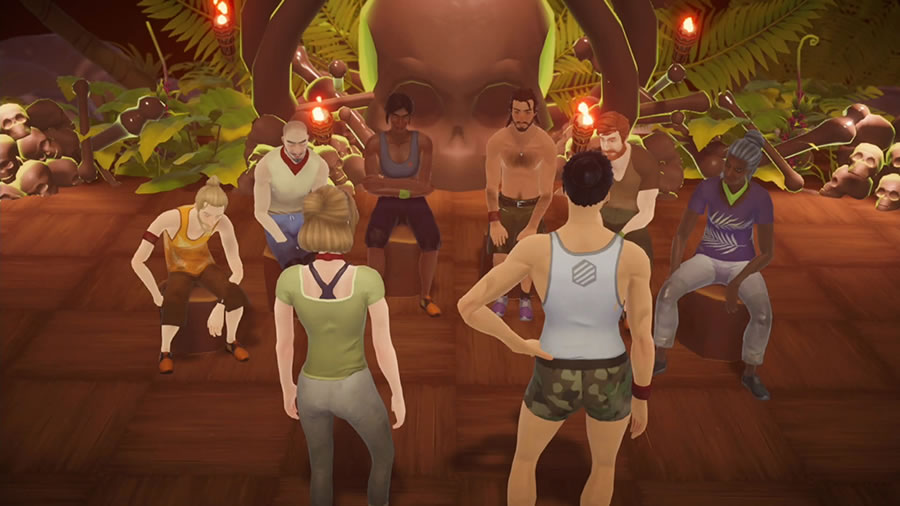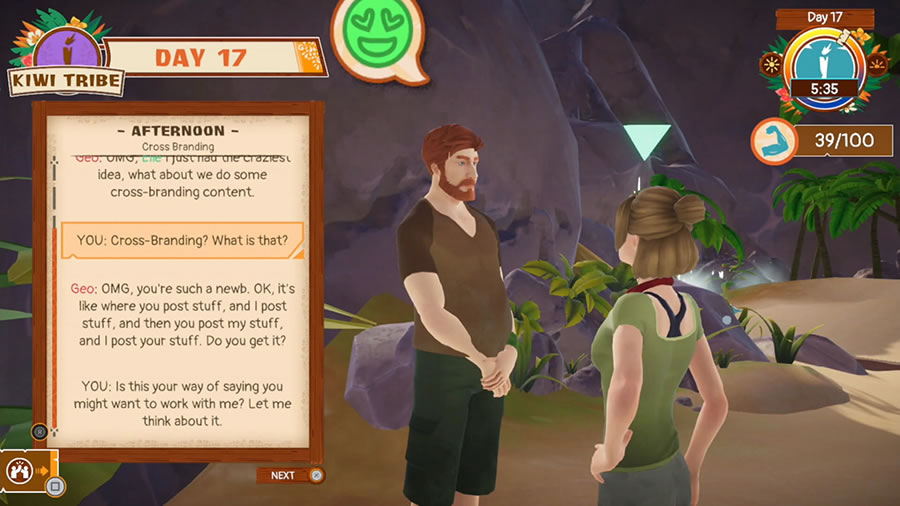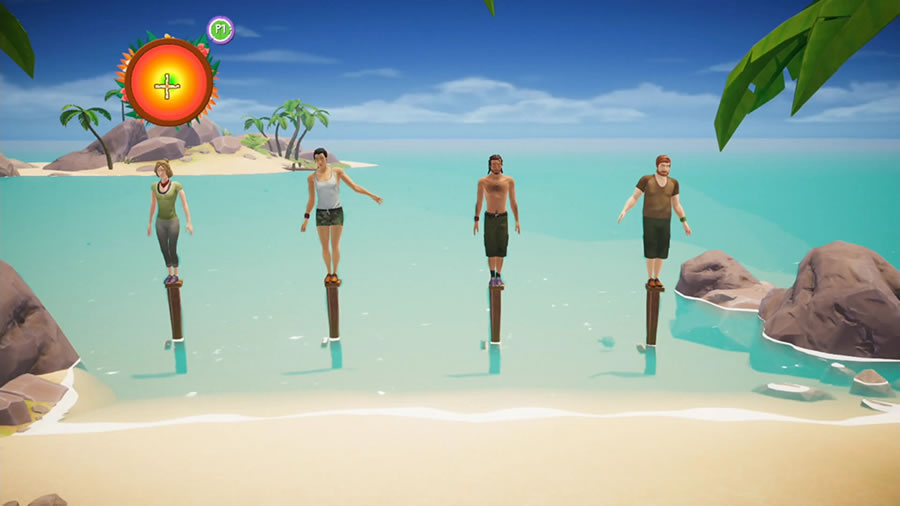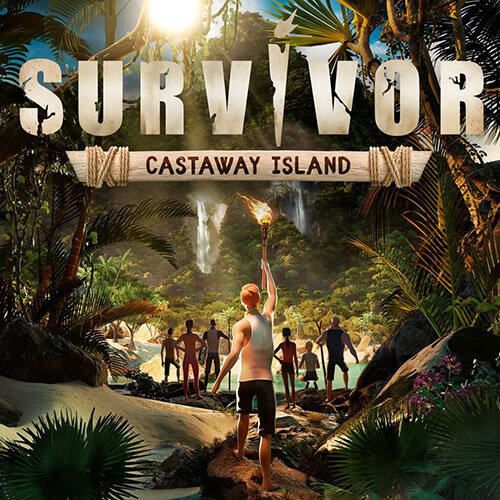- CLASSIC MAGAZINES
- REVIEW CREW
A show recapping what critics thought back
when classic games first came out! - NEXT GENERATION'S BEST & WORST
From the worst 1-star reviews to the best
5-stars can offer, this is Next Generation! - NINTENDO POWER (ARCHIVE)
Experience a variety of shows looking at the
often baffling history of Nintendo Power! - MAGAZINE RETROSPECTIVE
We're looking at the absolutely true history of
some of the most iconic game magazines ever! - SUPER PLAY'S TOP 600
The longest and most ambitious Super NES
countdown on the internet! - THEY SAID WHAT?
Debunking predictions and gossip found
in classic video game magazines! - NEXT GENERATION UNCOVERED
Cyril is back in this spin-off series, featuring the
cover critic review the art of Next Generation! - HARDCORE GAMER MAGAZING (PDF ISSUES)
Download all 36 issues of Hardcore Gamer
Magazine and relive the fun in PDF form!
- REVIEW CREW
- ELECTRONIC GAMING MONTHLY
- ELECTRONIC GAMING MONTHLY RANKS
From Mario to Sonic to Street Fighter, EGM
ranks classic game franchises and consoles! - ELECTRONIC GAMING MONTHLY BEST & WORST
Counting down EGM’s best and worst reviews
going year by year, from 1989 – 2009! - ELECTRONIC GAMING BEST & WORST AWARDS
11-part video series chronicling the ups and
downs of EGM’s Best & Worst Awards!
- ELECTRONIC GAMING MONTHLY RANKS
- GAME HISTORY
- GAME OVER: STORY BREAKDOWNS
Long-running series breaking down game
stories and analyzing their endings! - A BRIEF HISTORY OF GAMING w/ [NAME HERE]
Real history presented in a fun and pithy
format from a variety of game historians! - THE BLACK SHEEP
A series looking back at the black sheep
entries in popular game franchises! - INSTANT EXPERT
Everything you could possibly want to know
about a wide variety of gaming topics! - FREEZE FRAME
When something familiar happens in the games
industry, we're there to take a picture! - I'VE GOT YOUR NUMBER
Learn real video game history through a series
of number-themed episodes, starting at zero! - GREAT MOMENTS IN BAD ACTING
A joyous celebration of some of gaming's
absolute worst voice acting!
- GAME OVER: STORY BREAKDOWNS
- POPULAR SHOWS
- DG NEWS w/ LORNE RISELEY
Newsman Lorne Riseley hosts a regular
series looking at the hottest gaming news! - REVIEW REWIND
Cyril replays a game he reviewed 10+ years
ago to see if he got it right or wrong! - ON-RUNNING FEUDS
Defunct Games' longest-running show, with
editorials, observations and other fun oddities! - DEFUNCT GAMES QUIZ (ARCHIVE)
From online quizzes to game shows, we're
putting your video game knowledge to the test!- QUIZ: ONLINE PASS
Take a weekly quiz to see how well you know
the news and current gaming events! - QUIZ: KNOW THE GAME
One-on-one quiz show where contestants
find out if they actually know classic games! - QUIZ: THE LEADERBOARD
Can you guess the game based on the classic
review? Find out with The Leaderboard!
- QUIZ: ONLINE PASS
- DEFUNCT GAMES VS.
Cyril and the Defunct Games staff isn't afraid
to choose their favorite games and more! - CYRIL READS WORLDS OF POWER
Defunct Games recreates classic game
novelizations through the audio book format!
- DG NEWS w/ LORNE RISELEY
- COMEDY
- GAME EXPECTANCY
How long will your favorite hero live? We crunch
the numbers in this series about dying! - VIDEO GAME ADVICE
Famous game characters answer real personal
advice questions with a humorous slant! - FAKE GAMES: GUERILLA SCRAPBOOK
A long-running series about fake games and
the people who love them (covers included)! - WORST GAME EVER
A contest that attempts to create the worst
video game ever made, complete with covers! - LEVEL 1 STORIES
Literature based on the first stages of some
of your favorite classic video games! - THE COVER CRITIC
One of Defunct Games' earliest shows, Cover
Critic digs up some of the worst box art ever! - COMMERCIAL BREAK
Take a trip through some of the best and
worst video game advertisements of all time! - COMIC BOOK MODS
You've never seen comics like this before.
A curious mix of rewritten video game comics!
- GAME EXPECTANCY
- SERIES ARCHIVE
- NINTENDO SWITCH ONLINE ARCHIVE
A regularly-updated list of every Nintendo
Switch Online release, plus links to review! - PLAYSTATION PLUS CLASSIC ARCHIVE
A comprehensive list of every PlayStation
Plus classic release, including links! - RETRO-BIT PUBLISHING ARCHIVE
A regularly-updated list of every Retro-Bit
game released! - REVIEW MARATHONS w/ ADAM WALLACE
Join critic Adam Wallace as he takes us on a
classic review marathon with different themes!- DEFUNCT GAMES GOLF CLUB
Adam Wallace takes to the links to slice his way
through 72 classic golf game reviews! - 007 IN PIXELS
Adam Wallace takes on the world's greatest spy
as he reviews 15 weeks of James Bond games! - A SALUTE TO VAMPIRES
Adam Wallace is sinking his teeth into a series
covering Castlevania, BloodRayne and more! - CAPCOM'S CURSE
Adam Wallace is celebrating 13 days of Halloween
with a line-up of Capcom's scariest games! - THE FALL OF SUPERMAN
Adam Wallace is a man of steel for playing
some of the absolute worst Superman games! - THE 31 GAMES OF HALLOWEEN
Adam Wallace spends every day of October afraid
as he reviews some of the scariest games ever! - 12 WEEKS OF STAR TREK
Adam Wallace boldly goes where no critic has
gone before in this Star Trek marathon!
- DEFUNCT GAMES GOLF CLUB
- DAYS OF CHRISTMAS (ARCHIVE)
Annual holiday series with themed-episodes
that date all the way back to 2001!- 2015: 30 Ridiculous Retro Rumors
- 2014: 29 Magazines of Christmas
- 2013: 29 Questionable Power-Ups of Christmas
- 2012: 34 Theme Songs of Christmas
- 2011: 32 Game Endings of Christmas
- 2010: 31 Bonus Levels of Christmas
- 2009: 30 Genres of Christmas
- 2008: 29 Controls of Christmas
- 2007: 34 Cliches of Christmas
- 2006: 33 Consoles of Christmas
- 2005: 32 Articles of Christmas
- 2004: 31 Websites of Christmas
- 2003: 29 Issues of Christmas
- 2002: 28 Years of Christmas
- 2001: 33 Days of Christmas
- NINTENDO SWITCH ONLINE ARCHIVE
- REVIEW ARCHIVE
- FULL ARCHIVE
Survivor: Castaway Island
You may not know this about me, but I’m a massive fan of the long-running TV show Survivor. While I’m not the kind of super-fan who has all the names and competitions memorized, I have seen all of the American seasons and even went out of my way to track down the international versions from as far away as Australia, New Zealand and South Africa. As somebody who more than knows his way around a tribal council, I was intrigued by the release of Survivor: Castaway Island, a new game that will allow me to live out my Survivor dreams without having to nearly starve to death in the middle of nowhere. The result is, without a doubt, one of the most frustrating video gaming experiences I’ve ever had. Not because the game is too challenging or anything, but rather because ... well ... we have a lot to talk about. This is my review of Survivor: Castaway Island.
With 45 seasons spread across more than twenty years, I’m going to just assume that you know the basics of Survivor. It’s a show where the goal is to outplay, outwit and outlast the competition by winning competitions, voting off your tribemates and, if you’re lucky enough to make it to the end, convince a jury to give you the million dollars. The producers have added to the formula over the years -- hidden advantages, immunity idols, redemption island and so on – but the goal always remains the same, no matter if there’s an Island of Idols, Blood in the Water or Heroes, Healers and Hustlers.
In that regard, this Survivor game is a lot like the TV show. You choose a character, join a tribe and then work together to win immunity from tribal council. After a few people getting voted out, the two tribes merge and you play a more selfish game, where individual immunity is up for grabs and everybody has their own path to that million-bucks. All that is, more or less, the same as the show. There are some obvious differences up front (like the number of contestants and tribe names), but at least the trajectory of the season lines up with what we’re familiar with.
The days are basically split up into two activities – a mini-game challenge and camp maintenance. During the odd-numbered days, we’ll take part in some sort of reward challenge, something that will be immediately familiar to anybody who watches the show. It’s here where the TV contestants can win fishing tools, more food, better materials for camp and a whole bunch of other useful items that make life on an island a lot more comfortable. Unfortunately, in the game, the only reward you’ll win is a good massage. Don’t expect to earn better fishing gear in this game, because the only thing up for grabs is a good back rub.
While I flippantly write-off the benefits of a massage, this plays an important role when you’re back at camp. Each day you will be given fifteen minutes to hunt around for supplies, look for the hidden immunity idol and, most importantly, chit-chat with the other survivors. Assuming you’ve got your fire started, the first thing you’ll need to do is hunt around the jungle for wood, go down to the nearby streams to collect water and either shake the trees for coconuts or try your luck fishing right off the coast. These are the three items that will be used every day, and despite other people claiming to be pulling their own weight, most of the collecting will rest on your shoulders.
The trick is that every time you pick up sticks, shake a coconut tree or collect water, you’ll lose a small amount of stamina. You’ll also lose stamina after every competition or when you don’t have enough food to eat. Oh sure, you may earn a little back with a good night sleep, but it’s not nearly enough. You’ll need to balance the amount of supplies you can collect with the amount of stamina you’re able to extend. You certainly don’t want to go into the next challenge an exhausted mess, so make sure and take plenty of naps and try your hardest to win the massage reward.
When you’re not collecting supplies, you’ll spend most of your time chatting with the other survivors. This is where you’ll strengthen bonds and even form alliances, something that will be vital if you want the votes to continue going your way. Sadly, the social elements of Survivor: Castaway Island are not as fleshed out as you would hope. We’re given only a few options when it comes to discussing strategy, which results in you wooing everybody to your side in the exact same way. The information the computer-controlled contestants give is vague and generic, not even close to the complexity you find in the television show.
And this is where the Survivor video game falls apart. At no point does it feel like you’re playing against people who would be cast on the show. When a computer-controlled player tells you that they are a conspiracy nut or social media influencer, you better believe that’s the only thing they are going to talk about. Nobody in this game acts like they would on the show, which in turn makes it not feel all that much like Survivor.
Here's an example of what I’m talking about. On the TV show, when there’s an especially contentious vote at tribal council, there are usually hurt feelings and people who want to talk about it. These are often deliciously awkward moments where somebody is demanding answers. There’s nothing like that here. Once somebody is voted out of the game, it’s back to the status quo, almost as if nothing happened the night before. You’ll talk to somebody who just lost their top ally, only to find that they want to collaborate on a cross-branding blitz when the game is over. There’s no way to outwit somebody who has no wit to begin with.
And that brings me to the most frustrating part of the game – tribal council. This is, for many Survivor fans, the most enjoyable part of the episode. It’s a moment where Jeff Probst gets to ask questions that can lead to last-second strategizing. Some of the best moments come from the survivors playing mind-games or flipping a vote simply by threatening to use an idol. This is what Survivor is all about.
In the game, there is no Jeff Probst. There is no last-second strategizing. There are no mind-games. There are no questions to the survivors. There is no way to talk your way out of being voted out or threatening to play an idol. Plain and simple, there is no tribal council. All you do is vote. That’s it.
In the show, you probably would have cared about that character. They might have been a hero or a villain or somebody that gave good confessionals. Maybe you are happy that your favorite players moved one step closer to winning. None of that is present in this game. You won’t remember who you just voted out, because they simply were not a real person. They were a computer-created invention that doesn’t even come close to passing as anything other than a bot. I was basically trying to convince Chat GPT to let me win Survivor.
Now, you may have noticed that I haven’t spent much time talking about the mini-game challenges. That’s because they are ... fine? I guess? Look, a couple of them are reminiscent of what you see in the show, which is fun. There’s one where you have to call out steps to your blindfolded teammate, one that has you balancing on a tiny step and even one where you try to break colored masks. However, the developers take a lot of liberties when it comes to what is a Survivor challenge. The result is a collection that sort of resembles what you might see on the show, but not really.
The problem is that these mini-games are too simple. These days, we’re used to the multi-part challenges, where the tribe has to push or carry something heavy and then force some unlucky sap to solve a simple puzzle. That might as well be three different challenges in this game, which, once again, breaks the illusion of this simulating the TV show.
Because I’m a fan of the show, I can’t help but notice the weird inconsistencies. It’s in a lot of the small things, like how the game never refers to the contestants as “survivors,” instead opting for “adventurers.” Or how there’s no way to customize or upgrade your camp. Or how the water well has been replaced by a small creek. Or how they never say “tree mail.” Or how the jury only shows up in the finale, which doesn’t look or feel anything like the show’s finale. I could go on forever.
It's possible that all this annoys me more because I’m a fan of the show. For as much as I tried, it’s hard for me to put myself in the shoes of somebody who isn’t familiar with the show. Would a more casual player be as annoyed at the specific details as I am? Probably not. I’m sure there will be people who look at this as a fun mini-game collection that also happens to have a unique social game connected to it. I’m sure that person will find this game far less frustrating than I did.
But I ask you: Who is more likely to buy this game – the fan of the show or somebody who has somehow avoided all 45 seasons? Clearly, this game is aimed at people like me, which is why I’m so disappointed. How cool would it be to have a Survivor game that actually simulated all of the best aspects of the show. After playing through this game, I’m not even sure the developers have watched a season of Survivor. If you told me that they read the Wikipedia page and then clicked on a few YouTube videos, I might believe you. That would help to explain a lot of the weird inconsistencies.
The truth is, Survivor is one of those television shows that is impossible to accurately translate to a video game. So much of what makes it compelling comes down to simple things like personal biases and paranoia. Survivors are not always predictable, which is a lot of what makes the show so fun to watch. Between the lack of food, bad sleeping conditions and exhaustion, people are not always rational, and that’s something that is hard to program into a video game. This may be one of those times when the human component may be needed to make Survivor truly work, and without it, everything else feels as artificial as, well, Survivor: Castaway Island.
HOME |
CONTACT |
NOW HIRING |
WHAT IS DEFUNCT GAMES? |
NINTENDO SWITCH ONLINE |
RETRO-BIT PUBLISHING
Retro-Bit |
Switch Planet |
The Halcyon Show |
Same Name, Different Game |
Dragnix |
Press the Buttons
Game Zone Online | Hardcore Gamer | The Dreamcast Junkyard | Video Game Blogger
Dr Strife | Games For Lunch | Mondo Cool Cast | Boxed Pixels | Sega CD Universe | Gaming Trend
Game Zone Online | Hardcore Gamer | The Dreamcast Junkyard | Video Game Blogger
Dr Strife | Games For Lunch | Mondo Cool Cast | Boxed Pixels | Sega CD Universe | Gaming Trend
Copyright © 2001-2025 Defunct Games
All rights reserved. All trademarks are properties of their respective owners.
All rights reserved. All trademarks are properties of their respective owners.






































